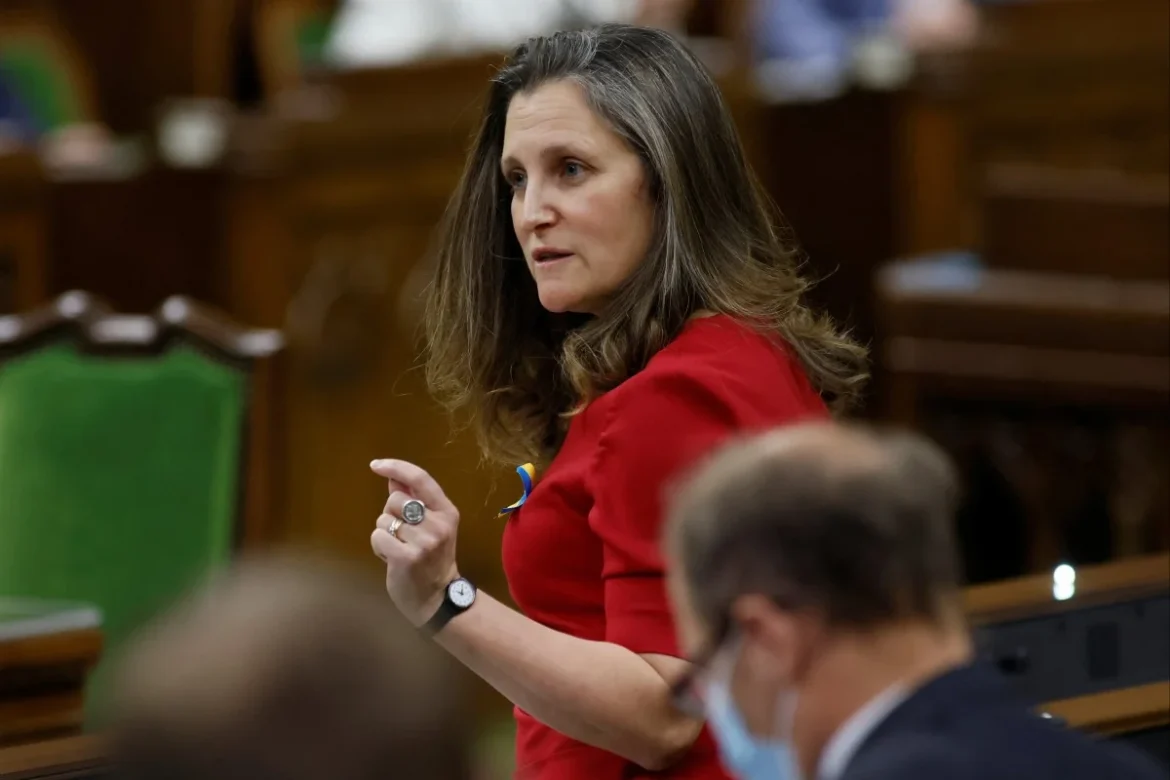Freeland’s Resignation
In a surprising turn of events, Canada is currently experiencing significant political turmoil following the resignation of Deputy Prime Minister and Finance Minister Chrystia Freeland. Freeland, who has been a pivotal figure in Prime Minister Justin Trudeau’s government, announced her departure citing policy disagreements with Trudeau as the main catalyst for her exit. This unexpected move has not only heightened tensions within the ruling Liberal Party but has also sparked intensified calls for the Prime Minister’s resignation, challenging the stability of the current administration.
Economic and Political Context
The resignation of Freeland comes at a particularly critical juncture for Canada, with multiple factors contributing to the country’s strained political landscape. Economically, Canada is contending with rising inflation, a slowdown in growth, and the looming threat of U.S. trade policies under President-elect Donald Trump, who has proposed a 25% tariff on Canadian imports. This potential move poses a significant risk to several key Canadian industries, leading to heightened concerns among business leaders and policymakers alike. Additionally, the ongoing strife within the Liberal Party has led some members to align with opposition sentiments, increasingly questioning the effectiveness of Trudeau’s leadership and the overarching direction of the government.
Leadership Changes
In the aftermath of Freeland’s resignation, Prime Minister Trudeau has reacted promptly by appointing Dominic LeBlanc as the new Finance Minister. However, the Deputy Prime Minister position remains unfilled, adding to the uncertainty surrounding the government’s immediate future. The choice of LeBlanc may indicate Trudeau’s intent to stabilize the cabinet amid internal unrest, but the absence of a Deputy Prime Minister leaves a substantial gap in the administration’s leadership structure, which may hinder its ability to respond effectively to current crises.
Public and Political Reactions
The political landscape is charged with reactions from various quarters. Within the Liberal Party, members have grown increasingly critical of Trudeau’s leadership style, prompting some to call for a new party leader who can effectively navigate both internal and national challenges. Meanwhile, opposition parties are capitalizing on the situation, advocating for early elections out of belief that the government has lost both credibility and direction. Furthermore, public sentiment appears to be split, with many Canadians expressing concerns about the government’s capability to manage the ongoing economic and political turmoil.
Implications for Canada-U.S. Relations
Freeland’s resignation carries notable implications for Canada’s relationship with the United States, particularly considering the challenges presented by the incoming Trump administration’s trade policies. The proposed tariffs could drastically affect Canadian exports, threatening the stability of Canada’s economy. Moreover, Freeland was widely regarded as a strategic negotiator during the discussions surrounding the United States-Mexico-Canada Agreement (USMCA), suggesting that her absence leaves a void in Canada’s leadership at a pivotal moment for trade relations. The future of these interactions is now uncertain as the Canadian government seeks to redefine its negotiating stance.
What’s Next for Trudeau?
Looking ahead, political analysts highlight that Prime Minister Trudeau’s ability to adeptly navigate the current crisis will play a crucial role in determining both his own political future and the stability of his government. Among the key challenges he faces are restoring unity within the Liberal Party to mitigate the risk of further defections or a leadership challenge, crafting a comprehensive economic strategy to counteract pressure from both domestic and international fronts, and addressing the mounting calls for early elections. Each of these elements presents a significant test for Trudeau as he attempts to regain the confidence of both his party members and the Canadian public.
Conclusion: A Defining Moment for Canada
The resignation of Chrystia Freeland has undeniably plunged Canada into a state of political uncertainty, carrying extensive implications for the Trudeau government’s future and the nation’s broader domestic and international policies. As Canadians closely monitor the evolving situation, the actions taken by Trudeau’s administration in the coming weeks will be vital in determining whether the government can successfully stabilize or if the situation will escalate into an early election. The stakes are extraordinarily high, not only for the nation’s leadership but also for Canada’s standing on the global stage, particularly in light of its crucial economic relationship with the United States.
FAQs
What led to Chrystia Freeland’s resignation?
Chrystia Freeland resigned primarily due to policy disagreements with Prime Minister Justin Trudeau, which have intensified divisions within the Liberal Party.
Who has been appointed as the new Finance Minister?
Dominic LeBlanc has been appointed as the new Finance Minister following Freeland’s resignation.
What are the economic challenges Canada is currently facing?
Canada is grappling with rising inflation, slowing economic growth, and potential trade tariffs from the incoming U.S. administration.
How has the public reacted to the political crisis?
Public sentiment is divided, with a mix of support and concern regarding the government’s ability to manage the ongoing crises effectively.
What implications does Freeland’s resignation have for Canada-U.S. relations?
Freeland’s resignation is concerning amid challenges posed by U.S. trade policies, as she was considered a skilled negotiator in trade discussions.

